President Donald Trump is looking at suspending habeas corpus, the right of a person to challenge their detention in court, as part of his sweeping immigration crackdown.
‘The Constitution is clear, and that, of course, is the supreme law of the land, that the privilege of the writ of habeas corpus can be suspended in a time of invasion,’ White House deputy chief of staff Stephen Miller told reporters.
‘So it’s an option we’re actively looking at,’ Miller said. ‘A lot of it depends on whether the courts do the right thing or not.’
Trump campaigned for the White House on a pledge to deport millions of undocumented migrants and has repeatedly referred to their presence in the United States as an ‘invasion.’
Since taking office in January, Trump has been seeking to step up deportations, but his efforts have met with pushback from multiple federal courts which have insisted that migrants targeted for removal receive due process.
Although Trump has not mentioned habeas corpus explicitly in public, last month he commented on steps he could take to combat nationwide injunctions against his actions on deportations.
‘There are ways to mitigate it and there’s some very strong ways,’ Trump told reporters on April 30.
‘There’s one way that’s been used by three very highly respected presidents, but we hope we don’t have to go that route. But there is one way used successfully by three presidents – all highly respected – and hopefully we don’t have to go that way but there are ways of mitigating it.’
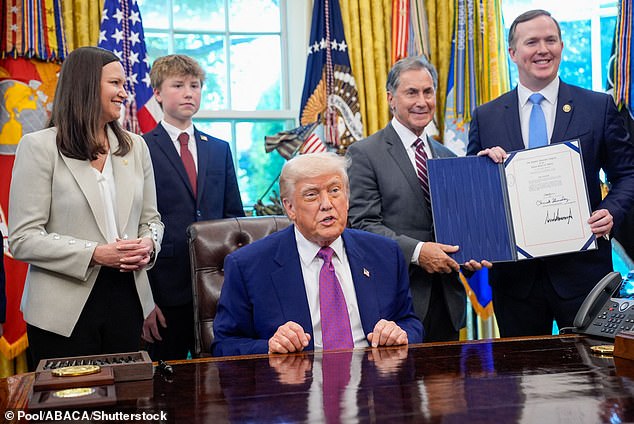
President Donald Trump is looking at suspending habeas corpus, the right of a person to challenge their detention in court, as part of his sweeping immigration crackdown
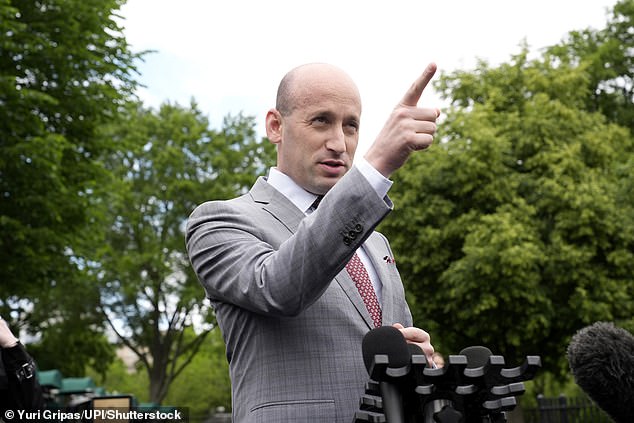
White House Deputy Chief of Staff Stephen Miller said ‘the privilege of the writ of habeas corpus can be suspended in a time of invasion’
One former federal prosecutor told CNN that Miller has the wrong idea about suspending habeas corpus.
‘Essentially everything Miller says about suspending habeas corpus – which would eliminate the ability of the courts to rule on immigration matters – is wrong,’ said Elie Honig, now a CNN senior legal analyst.
‘The Constitution makes clear that suspension of habeas corpus is to be reserved for actual rebellion or invasion posing the most dire threats to public safety. And Congress has never passed a law authorizing deportations without any court involvement, as Miller suggests.’
Among other measures, Trump has invoked an obscure wartime law in March to summarily deport hundreds of alleged Venezuelan gang members to a prison in El Salvador.
Several federal courts have blocked further deportations using the 1798 Alien Enemies Act and the Supreme Court also weighed in, saying migrants subject to deportation under the AEA must be given an opportunity to legally challenge their removal in court.
The AEA was last used to round up Japanese-Americans during World War II and was previously invoked during the War of 1812 and World War I.
Many judges, including one appointed by Trump, have rejected the invocation of the AEA, stating in rulings how the administration had not shown the United States to be under invasion by a hostile foreign power, as laid out under the 18th century statute.
Suspending habeas corpus could potentially allow the administration to dispense with individual removal proceedings and speed up deportations, but the move would almost certainly be met with stiff legal challenges and end up in the Supreme Court.
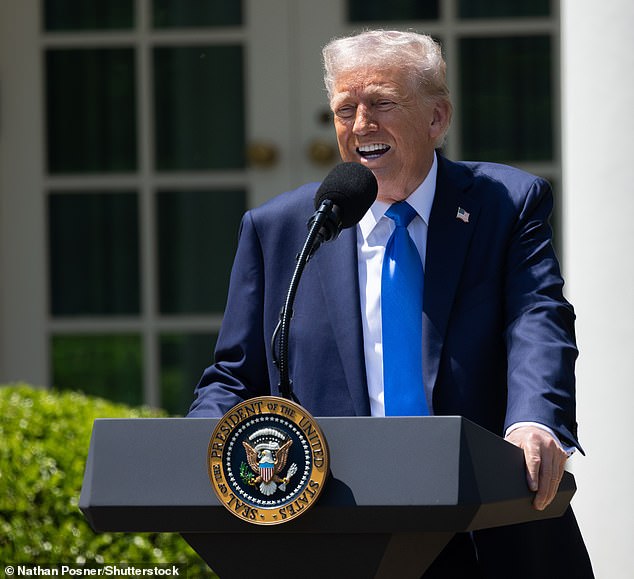
Donald Trump has touted his immigration crackdown as he marked his 100th day in office
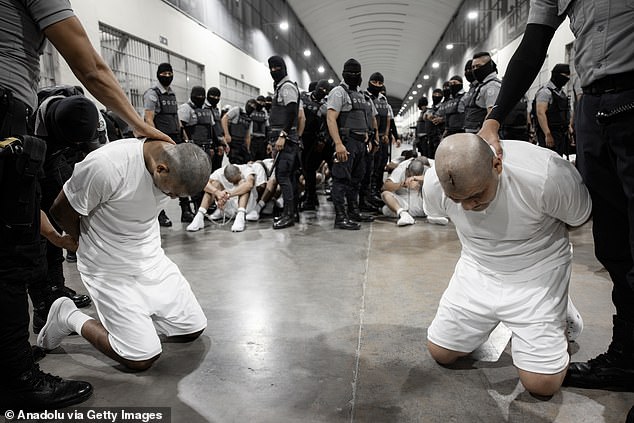
The Trump administration initially accepted it had made a mistake in deporting Abrego Garcia, a Maryland father-of-three who arrived in the US more than a decade ago
It has been suspended only rarely in US history, most notably by president Abraham Lincoln during the 1861-1865 Civil War and in Hawaii after the December 1941 Japanese attack on Pearl Harbor.
In March, the US government deported more than 200 Venezuelan immigrants alleged to have ties to the Tren de Aragua gang to El Salvador, paying the Salvadoran government to imprison them.
Since then, they have had no access to lawyers or ability to communicate with their families. Neither the US nor Salvadoran governments have said how the men could eventually regain their freedom.
The Republican president has touted his immigration crackdown as he marked his 100th day in office last week.
Trump won the White House election last November in large part on promises to combat what he repeatedly claimed is an invasion of criminal migrants.
Trump has sent troops to the Mexican border, imposed tariffs on Mexico and Canada for allegedly not doing enough to stop illegal crossings, and designated gangs like TdA and MS-13 as terrorist groups.
In March Trump invoked the little-known Alien Enemies Act and flew two planeloads of alleged Tren de Aragua members to El Salvador’s notorious maximum security CECOT prison.
In a proclamation, Trump said Tren de Aragua was engaged in ‘hostile actions’ and ‘threatening an invasion or predatory incursion against the territory of the United States,’ adding that Venezuela’s Nicolas Maduro was pulling the strings.
In the most publicized case to date, Maryland resident Kilmar Abrego Garcia was deported to CECOT before the Trump administration admitted he was sent there due to an ‘administrative error.’
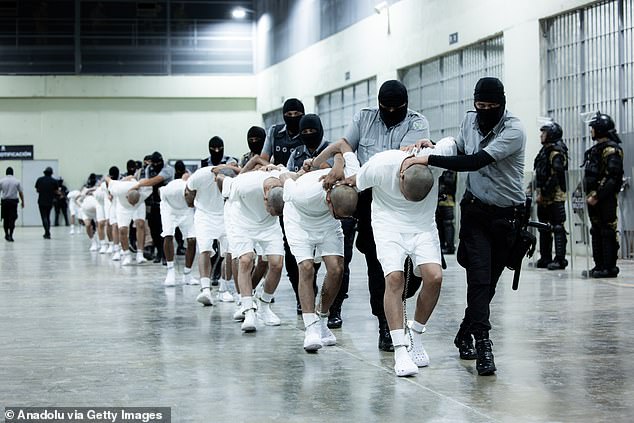
He was among 238 suspected gang members sent to the hellish CECOT prison in El Salvador
Last week, Trump said he has not spoken to El Salvador’s president about returning Abrego Garcia.
In an ABC News interview on Tuesday, Trump said he could help return the. man with a single phone call but would not, despite the US Supreme Court’s April 10 order for his administration to ‘facilitate’ his release.
Trump’s administration has argued that only El Salvador can act to return him.
Abrego Garcia, 29, a Salvadoran migrant who was living in Maryland with a work permit, was detained by U.S. immigration officers in March and questioned about alleged gang ties before being sent on one of three deportation flights to El Salvador with Venezuelan migrants despite a protective order allowing him to remain in the U.S.
The White House has repeated the unproven accusation that Abrego Garcia is part of criminal gang MS-13, which the administration has designated a foreign terrorist group.
His lawyers deny any gang affiliation, saying he left El Salvador at age 16 to escape such violence and received a protective order in 2019 to continue living in the US.
Department of Homeland Security assistant secretary Tricia McLaughlin made the administration’s position known.
‘The facts are clear: Kilmar Abrego Garcia is a violent illegal alien who abuses women and children. He had no business being in our country and we are proud to have deported this violent thug.’
On Sunday, Trump said he was unsure whether people in the US are entitled to due process rights guaranteed in the US Constitution as his administration pushes aggressively to deport immigrants who are in the country illegally and other non-citizens.
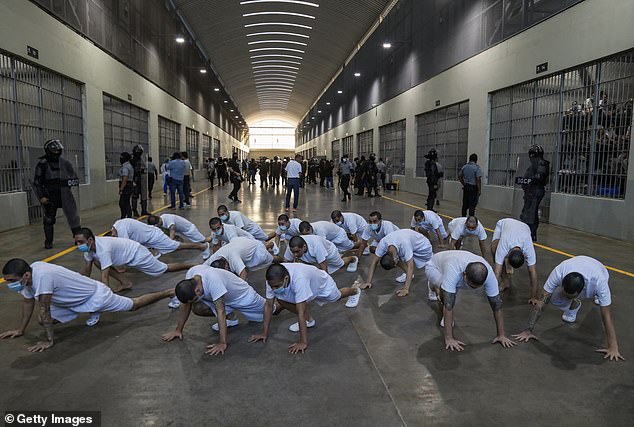
Garcia is being held at the notorious Terrorism Confinement Center in El Salvador
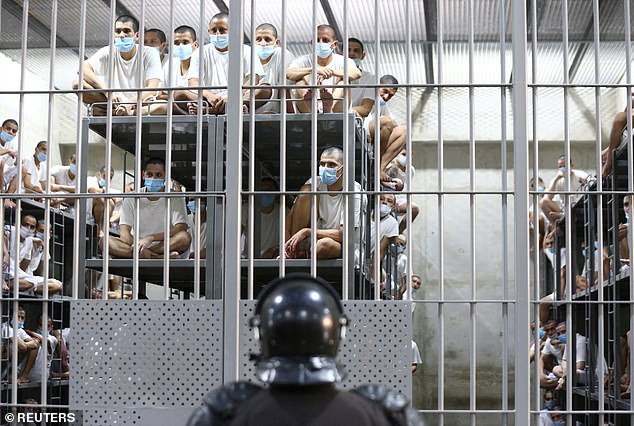
The facility has been condemned by human rights groups and likened by critics to a modern-day gulag
Trump made his comments during an interview on NBC’s Meet the Press with Kristen Welker.
Welker asked Trump whether he agreed with Secretary of State Marco Rubio, who said last month that ‘of course’ all people in the US are entitled to due process, which generally requires the government to provide notice and a hearing before taking certain adverse legal actions.
‘I don’t know. I’m not, I’m not a lawyer. I don’t know,’ Trump said, adding that such a requirement would mean ‘we’d have to have a million or 2 million or 3 million trials.’
Trump added that his lawyers ‘are going to obviously follow what the Supreme Court said.’
The Fifth Amendment provides ‘due process of law,’ meaning a person has certain rights when it comes to being prosecuted for a crime. Also, the 14th Amendment says no state can ‘deny to any person within its jurisdiction the equal protection of the laws.’
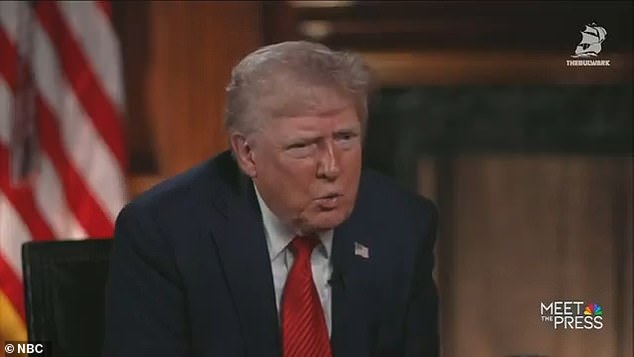
On Sunday, Trump told NBC said he was unsure whether people in the US are entitled to due process rights guaranteed in the US Constitution as his administration pushes aggressively to deport immigrants who are in the country illegally and other non-citizens
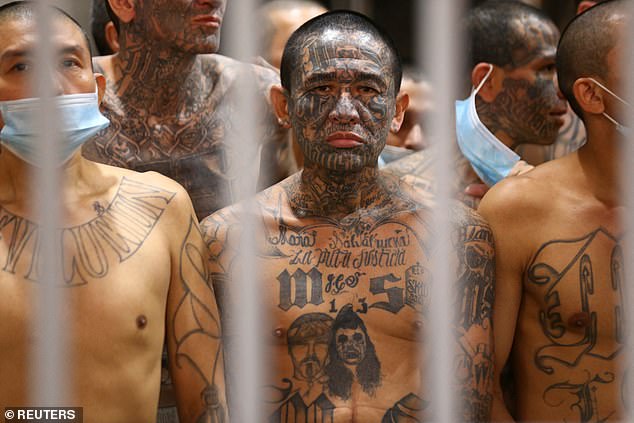
Inmates look on inside a jail during a media tour at the Terrorism Confinement Center (CECOT) prison, in Tecoluca, El Salvador last month
Trump said he has ‘brilliant lawyers … and they are going to obviously follow what the Supreme Court said.’
He said he was pushing to deport ‘some of the worst, most dangerous people on Earth,’ but that courts are getting in his way.
‘I was elected to get them the hell out of here, and the courts are holding me from doing it,’ Trump said.
On April 19 the Supreme Court justices temporarily barred the Trump administration from deporting a group of Venezuelan migrants it accused of being gang members.
Trump’s administration, which invoked the AEA, a rarely used wartime law, has urged the justices to lift or narrow their order.












